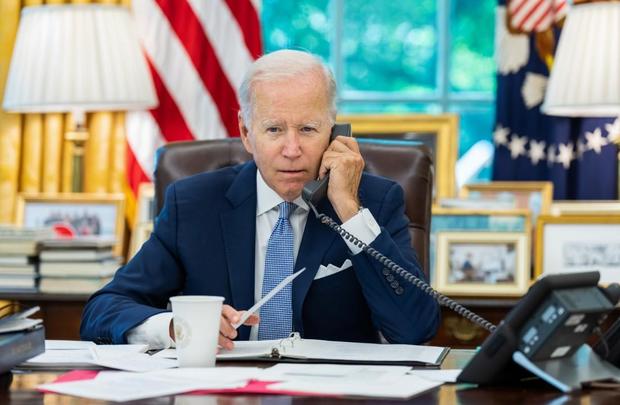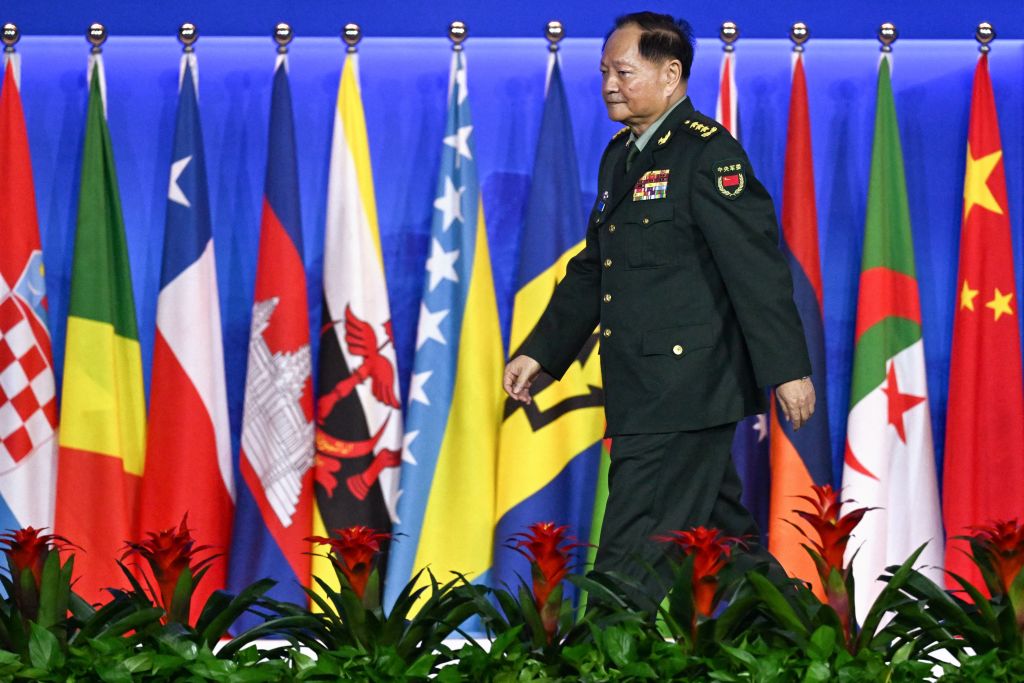Biden speaks with China's Xi for over 2 hours amid tensions with Taiwan
Washington — President Biden and Chinese President Xi Jinping spoke by phone for 2 hours and 17 minutes on Thursday, their first conversation in roughly four months.
The call was part of the administration's efforts "to maintain and deepen lines of communication" between the U.S. and People's Republic of China (PRC) and to "responsibly manage our differences and work together where our interests align," according to a White House statement.
On Taiwan, Mr. Biden told Xi that the U.S. has not changed its policy and "strongly opposes unilateral efforts to change the status quo or undermine peace and stability across the Taiwan Strait," the White House said. Tensions have been rising over Taiwan, with Beijing angry over a potential visit to the island by House Speaker Nancy Pelosi. She originally planned to lead a congressional delegation on a trip to Asia in early April, but it was postponed when she contracted COVID-19. That trip was expected to include a stop in Taiwan.
Last week, Mr. Biden said U.S. military officials think it's "not a good idea" for Pelosi to visit Taiwan at the moment. The Chinese Foreign Ministry has said it would take "resolute and strong measures" if Pelosi continues with her travel plans, but her travel plans were not expected to be discussed on the call, though Xi's remarks about Taiwan carried a vague warning. Xinhua's readout of the call said Xi told Mr. Biden it was the "firm will" of the Chinese people that China's sovereignty and territorial integrity be safeguarded. "Public opinion cannot be violated," Xi said. "Playing with fire will set yourself on fire. I hope the U.S. side can see this clearly."
According to a senior Biden administration official, Xi and Mr. Biden "discussed the fact that the United States and China have differences when it comes to Taiwan, but that they have managed those for over 40 years, and [said] that keeping an open line of communication on this issue is essential to continuing to do so."
The official also declined to characterize whether Xi would consider a visit to Taiwan by Pelosi as escalatory in nature.
The two presidents last spoke on Mar. 18, and conversations between high-level U.S. and PRC officials have also taken place. According to the White House, the two presidents discussed a range of issues important to the U.S.-Sino relationship and will have their teams follow up on efforts to address climate change and health security, the public health events that threaten the health of individuals across the world.
The administration has also been weighing lifting Trump-era tariffs on some Chinese-made products to try to ease inflation. Last Sunday, Commerce Secretary Gina Raimondo told CBS News' "Face the Nation" that Mr. Biden was "still thinking about it." Though the president has the ability to act unilaterally on tariffs, Raimondo said he "wants to be certain that when we do it, or if we do it, it won't have any impact on American workers."
Mr. Biden and Xi have spoken multiple times since the president took office. The president and his aides often emphasize how important he thinks it is to have leader-to-leader conversations, rather than to delegate difficult discussions to top deputies and officials.
Xinhua also said in its readout of the conversation that Xi stressed that the U.S. characterization of relations with China as strategic competition and a "severe long-term challenge" is a "misjudgment" and "misinterpretation" of China's development, "which will harm the people of the two countries and the peace." Xi also stated that the U.S. and China should maintain communications and promote bilateral cooperation. Should promote "withdrawal and cooling of regional hotspot issues."
Bo Erickson contributed to this report.




